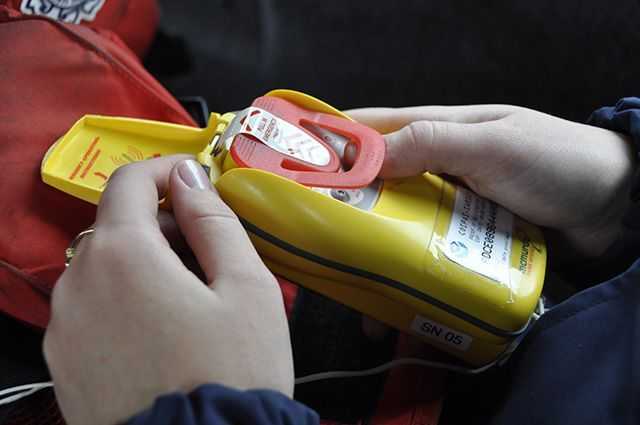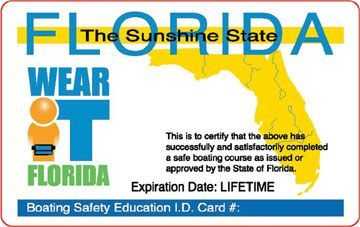
[dropcap]G[/dropcap]et the most out of your boating experience by being prepared. Boating in Florida is more fun when you are ready for anything. Always wear your life jacket and, before your next trip on the water, make sure to purchase, register, and have onboard your vessel an Emergency Position-Indicating Radio Beacon (EPIRB) or Personal Locator Beacon (PLB). You never know when it may save your life and the lives of others.
An EPIRB or PLB is used to alert search and rescue (SAR) agencies in the event of an emergency. It does this by transmitting a coded message on the 406 MHz distress frequency via satellite and earth stations to the nearest Rescue Coordination Center, which then notifies rescue personnel. If your EPIRB transmits GPS coordinates, your position can be identified in as little as 2-3 minutes.
An EPIRB is registered to a vessel and may be deployed automatically or manually. A PLB is registered to a person and may be used on land as well as the water. PLBs must be manually activated and may need to be held out of the water to function properly even though they are waterproof.
You must register your EPIRB or PLB with the National Oceanic and Atmospheric Administration (NOAA) at beaconregistration.noaa.gov – it is very easy and only takes a few minutes. If any of your information changes (phone number, address, emergency contact information, bought a new boat, etc.), you should update your EPIRB/PLB registration.
A national campaign, Saved by the Beacon, led by the National Safe Boating Council, helps recreational boaters understand the importance of emergency locator beacons and how to use them correctly in the case of a boating emergency. For more information, go to http://www.safeboatingcouncil.org/saved-by-the-beacon-campaign.
Boater Education

Florida Virtual School (FLVS®) is now offering high school students (grades 9-12) the ability to complete their Hunter Safety and Boater Safety certification while earning 0.5 credit for high school. The new FLVS physical education course is now available for free to Florida students.
Participants will develop skills in outdoor activities and learn about the benefits of physical activity while using proper safety procedures to experience wildlife, outdoor and extreme sports. By meeting all of the requirements of the Outdoor Education course, not only will students receive their Florida Boating Safety Education ID Card and be eligible to obtain a Florida Hunter Safety Certificate, they’ll also earn a 0.5 credit for high school, and meet public school requirements for taking an online course and a physical education course. For more information, visit www.flvs.net.
To find a course approved by the Florida Fish and Wildlife Conservation Commission and the National Association of State Boating Law Administrators, visit www.myfwc.com/boating/safety-education/id. Visitors from out of state who do not have a card issued by their home state can take a Temporary Certificate test.
FWC FACT: Anyone convicted of 2 non-criminal boating safety infractions within a 12-month period must successfully complete an approved boater education course.